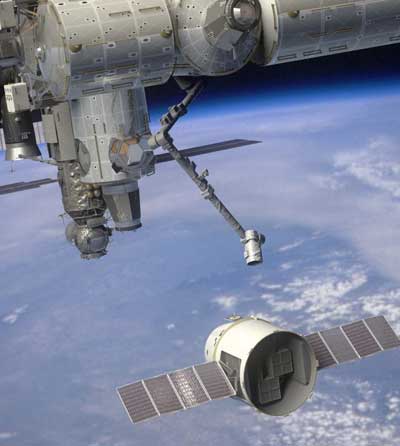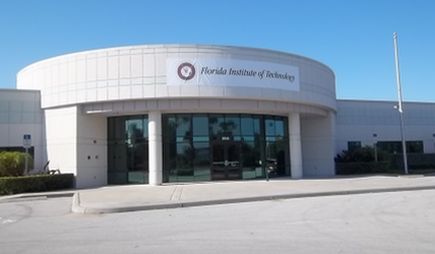FIT Students To Work On International Space Station
By Space Coast Daily // June 26, 2013
Engineering Students Earn 10-Week Internship
ABOVE VIDEO: Florida Institute of Technology students join International Space Station astronauts during a scheduled inflight event.
BREVARD COUNTY • MELBOURNE, FLORIDA — Kimberley Lineberger, a master’s program student in systems engineering at Florida Institute of Technology, and Kelly Gray, a Florida Tech junior in mechanical engineering, were two of just four university students chosen for a new program at Kennedy Space Center.

They earned paid internships from June 3 to Aug. 9 for the NASA Florida Space Grant Consortium and Space Florida Science, Technology, Engineering and Mathematics (STEM) program at the Space Life Sciences Laboratory (SLSL) at Kennedy Space Center.
The students, working on projects bound for the International Space Station (ISS) in the coming year, are under the guidance of mentors at organizations housed in the SLSL.
The intent of the internship program is to train and recruit Florida-based students focused on careers in science and engineering into Florida’s aerospace workforce.
DETERMINING BEST SYSTEMS FOR INTERNATIONAL SPACE STATION
The work of Lineberger, mentored by David Smith of NASA-KSC, is to evaluate several systems capable of detecting and identifying microbes.
“Our goal is to determine which system best fits the requirements for use on the International Space Station,” said Lineberger.
Being able to quickly identify potentially harmful microbes will improve the health and safety of the ISS crew.”
Lineberger earned a bachelor’s degree in applied mathematics from Georgia Tech. She is from Snellville, Georgia, and graduated from South Gwinnett High School.

Gray, mentored by Deborah Wells of Neuprene Inc., a research and development firm, is growing a type of cyanobacteria called Synechocystis SK‐14 to be used for biopolymer applications. One such application is making rubber. She cultures the cyanobacteria and tests it to determine at what density the cells grow the best. She is a 2012 graduate of Union County High School and resident of Raiford, Florida.
The wide range of aerospace firms operating at the SLSL building include CASIS, NASA KSC, Dynamac Corp, Molecular Power Systems, Cella Energy, Innovative Health Systems, QinetiQNorth America, Kentucky Space, Space Florida and Bionetics and Lighting Sciences, which will move in soon.
FOR MORE INFORMATION VISIT FIT.edu












